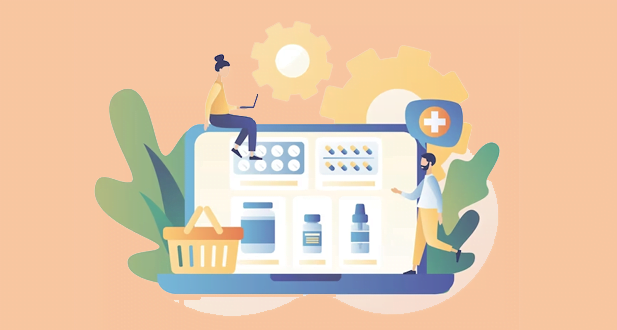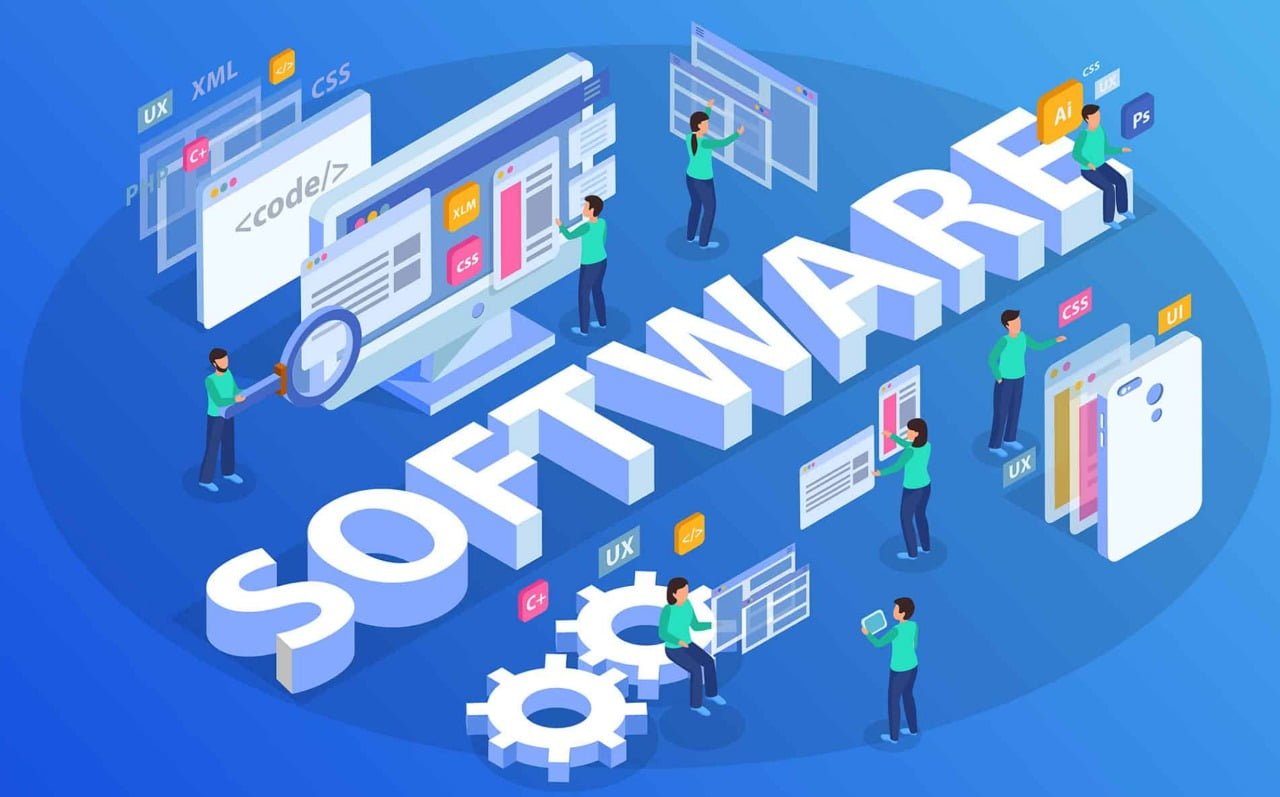How to Choose the Best Laundry Management Software
The laundromat and the dry cleaning industry have undergone substantial transformations over the past few years. Customers can now have their laundry done in a manner that is prompt, dependable, and cost-effective, thanks to the development of laundry services that can be accessed on demand.
What Are Laundry Services?
As used in business, laundry services pertain to organisations that provide customers with various laundry-related services.
People who prefer to have their laundry done for them, businesses that require laundry services to clean things like uniforms, dresses, and other textiles, and people who detest doing laundry at home are all served by a laundry service company.
Many washing machines are put in laundromats run by some laundry services for customers to use on a pay-as-you-go basis.
There are various kinds of washing services, including:
- Services for washing pickup
- Services for commercial cleaning
- Services for dry washing
- Services that fluff and arrange clothes
- Automatic laundromat
Additionally, you can offer your washing service to people or organisations like hotels, eateries, government offices, hospitals, etc.
Benefits of Modern Laundry Services
Whether you do your laundry at home or a self-service washing facility, it will always take up a lot of time that you could be using for something else. It can occasionally be inconvenient to drop off dirty garments and linens at your neighbourhood laundry washing service. Fortunately, contemporary washing services include collection and deliveries nowadays.
Here are some of the most noteworthy advantages of modern washing services:
- They cost less than doing your laundry at home: The cost of buying excellent washers, dryers, top-notch detergents, and cleaning supplies can build up quickly. Additionally, washing your clothes at home will increase water and electricity costs. If you think washing by hand will save you money, you might be underestimating the worth of your time. However, the following benefit will address that.
- Modern laundry services are more efficient and quicker: Back in the day, laundry services may take up to three days after you drop your laundry off. However, washing services are now much quicker, sometimes even faster, than doing the laundry yourself.
- Your laundry service company can manage stain and odour removal expertly: Have you experienced trying to remove a stubborn stain but eventually accepted that you can only use your favourite shirt as a pyjama now? If you let the pros manage your washing, that won’t happen. They comprehend how to eliminate tough stains and unpleasant smells without harming your sheets and clothes.
- The convenience of modern washing services cannot be denied: There is no denying the convenience of contemporary washing services. If your service supplier provides pickup and delivery options, you won’t even have to leave the comfort of your house. You can use your time effectively for business, spending time with family, or simply taking care of yourself.
- Professional results: Laundry service providers specialise in handling– well laundry. Professionals use techniques and procedures to ensure that clothing is dealt with delicately but thoroughly cleansed. Your clothes will be delivered in perfect condition if you pick the correct laundromat.
You will get different outcomes from a consumer-grade washer and dryer from a modern laundry service supplier.
The Workflow Of The Laundry Management System
- Customers use a smartphone program to make orders.
- Payment in whole or in part, depending on requests.
- Delivery agents pick up garments (from the store, home, or organisation)
- Clothing is delivered from stores to manufacturers.
- Barcodes on clothing are scanned.
- Production of laundry in a facility.
- Delivery, packing, and sorting
Why Are Laundry Services Important
There are many reasons why some company owners choose to start laundromats.
- The laundry service provider’s expertise in cleaning various materials with multiple tools and products is the most crucial factor to consider.
- They might delegate their cleaning requirements to a specialist business that can manage hospital-generated laundry with toxic stains like blood, chemicals, or chemicals.
- Laundry services are crucial because they offer a “convenience” service.
- Managing a lot of laundry and washing various fabrics can be difficult.
- Laundry service providers can handle large quantities of loads, and they can complete their job quickly.
- They can take advantage of economies of scale to a greater extent the more traffic they can manage.
Advantages of Laundry Management Software
Management applications Organizations in the UAE that need a constant supply of clean sheets, uniforms, work clothes, medicinal garments, or janitorial supplies can benefit tremendously from using laundry management software.
Industrial laundries were well aware of the advantages of using laundry management software to regulate large-scale washing operations long before consumer laundries were. Commercial laundries handle a sizable volume of pieces for numerous clients each hour. Over 200 million suits and other clothing items are reportedly leased annually in the UAE. These outfits all require washing. The proper client must receive each of these cleaned outfits.
Software for managing the laundry Organizations will gain a variety of advantages from systems for business services, including:
- Enhancing your product control administration procedures.
- Streamline methods for expert laundry.
- Timetables and chronicles of repair records.
- Organise your computer data gathering in a way that is quicker and much better than before.
Some automatic systems can now track large quantities of particular laundry products more quickly and efficiently thanks to laundry management software. As a company owner, automating these processes will help you manage your time more effectively and gather the data you need to make wise business choices. Laundry software is readily available in Dubai, giving consumers a pre-programmed option.
It is feasible to autonomously track apparel, linens, rags, and other materials using laundry management software, automating the inventory process and bookkeeping. Many business laundry operators have received high-quality responses from this program.
Types of Laundry Services
Laundry services come in various forms.
- Traditional Laundry Services: One kind of laundry service is when a business takes up laundry from a person’s house or place of work on a scheduled basis
Once everything has been washed and cleaned, the service provider will perform the laundry services and deliver the laundry back to the client or business.
- Laundromats: The construction of laundromats is another form of washing service. Laundromats provide numerous benefits, including spot removal, dry cleaning, ironing, folding, and repairing.
Typically, customers leave their dirty clothes at the laundromat for cleansing.
- Services for Industrial Laundry: Businesses like eateries, hotels, hostels, hospitals, animal shelters, schools, police agencies, and others use industrial laundry services to meet their cleaning requirements.
In this instance, the laundry service provider will offer particular services and take specific actions following the client’s requests.
- Dry Cleaning Services: A laundry service called dry cleaning involves washing clothing, textiles, and other items without water.
This kind of service meets the requirements of people and businesses that clean suits, uniforms, expensive clothing, or a particular type of fabric.
- Other Laundry Services: You can offer additional washing services, like establishing a laundromat with machines that people can use for single tasks.
Universities and schools may receive laundry services to manage student washing in the residence halls.
4 USUAL PROBLEMS WITH DRY CLEANING: Laundry is similar to an arithmetic issue you can solve after a few attempts. We’ve all been victims of catastrophes brought on by our negligence or ignorance. Here are some typical cases everyone runs into and how to prevent them.
Laundry is similar to an arithmetic issue you can solve after a few attempts. We’ve all been victims of catastrophes brought on by our negligence or ignorance. The following are some typical issues that everyone runs into and how to prevent them:
- Clothes with Holes: Finding a tear in your beloved shirt or blouse is the worst feeling ever. You can only sometimes pass them off as a fashion statement. When various fabrics are washed together and too much chlorine bleach is used, holes may start to show up due to wear and strain. To avoid this, arrange your clothing by fabric and, for optimal results, study the labels.
- Shrinkage: To prevent alterations, read the labels on your clothing. Use chilly water to wash your garments. Compared to tepid and hot water, it is less harmful to textiles. Hot water can cause your dress to relax, making the fabric misshapen. Avoid drying clothing by placing it on racks. The material will expand as a consequence of the water’s additional weight.
- Yellowed Clothes: Smoke and cooking residue are two environmental variables that can make textiles yellow. Your perspiration and other bodily salts cause armpit yellowing on garments, which is difficult to remove. The acids in a cardboard package or on wooden shelves can cause poorly kept clothing to react and turn yellow. This can be fixed by washing your garments with tepid water and oxygen-based bleach. Add laundry blueing to the wash or rinse water to make white clothes look brighter.
- Lint on Clothing: Before putting our clothes into the washing machine, we frequently need to examine our pockets. When your clothing is eventually cleaned and dried, rolling lint remover over it can be annoying. Sort lint attractors like corduroys, synthetic blends, and dark fabric from lint makers like fleece sweatsuits and flannel jammies to avoid ruining your entire load of washing. Use a lint roller or the adhesive side of packaging or masking tape to clear the fuzz.
Let the experts care for your garments, and stop worrying about laundry accidents.
Choosing the right laundry management software is crucial for streamlining operations, improving customer satisfaction, and increasing profitability. Here are some key considerations and features to look for when selecting the best software for your laundry business.
Laundry services have evolved significantly over the years, offering a variety of options to meet the diverse needs of customers. Here is a comprehensive look at the different types of laundry services available, each catering to specific requirements and preferences:
1. Self-Service Laundromats
- Description: These are facilities where customers can do their laundry themselves using coin-operated washing machines and dryers.
- Features:
- Multiple machines for washing and drying.
- Availability of detergents and fabric softeners for purchase.
- Often open 24/7 for convenience.
- Usually equipped with folding tables and seating areas.
2. Full-Service Laundry
- Description: Full-service laundries handle the entire process from washing to folding.
- Features:
- Drop-off service where customers leave their laundry and pick it up later.
- Professional handling of garments.
- Services may include washing, drying, ironing, and folding.
- Ideal for busy individuals who need time-saving solutions.
3. Dry Cleaning
- Description: A specialized service for cleaning delicate fabrics that cannot be washed in water.
- Features:
- Use of chemical solvents instead of water.
- Suitable for items like suits, dresses, and silk garments.
- Includes pressing and sometimes minor repairs.
- Ensures that delicate fabrics maintain their quality and shape.
4. Commercial Laundry Services
- Description: These services cater to businesses such as hotels, restaurants, hospitals, and spas.
- Features:
- Handling large volumes of laundry.
- Services may include linen rental and uniform cleaning.
- Industrial-grade machines for efficient processing.
- Often includes pick-up and delivery services.
5. On-Demand Laundry Services
- Description: These are modern, app-based services that offer convenience and flexibility.
- Features:
- Users can schedule pick-up and delivery through a mobile app or website.
- Offers a variety of services including washing, drying, ironing, and dry cleaning.
- Real-time tracking and notifications.
- Suitable for tech-savvy customers looking for seamless service.
6. Green Laundry Services
- Description: Focus on eco-friendly practices and products.
- Features:
- Use of biodegradable detergents and energy-efficient machines.
- Often incorporate water-saving technologies.
- Suitable for environmentally conscious consumers.
- May offer reusable bags for pick-up and delivery to reduce plastic waste.
7. Specialty Laundry Services
- Description: These services cater to specific types of garments or needs.
- Features:
- Cleaning of wedding dresses, costumes, and other delicate or intricate items.
- Services for leather, suede, and fur cleaning.
- Restoration services for vintage or damaged garments.
- Expertise in handling unique fabrics and embellishments.
1. Identify Your Business Needs
- Scale of Operations: Determine whether your software needs to manage a small, medium, or large-scale operation.
- Service Types: Identify the types of services you offer, such as dry cleaning, laundry, alterations, and delivery.
- Customer Base: Understand your customer demographics and their expectations.
- Budget: Define a budget for software investment, considering both initial costs and ongoing subscription fees.
2. User-Friendly Interface
- Ease of Use: Ensure the software is easy to navigate for both staff and customers.
- Training: Look for solutions that offer comprehensive training resources or intuitive interfaces to minimize the learning curve.
- Customization: Choose software that can be customized to fit your specific workflows and branding.
3. Key Features to Look For
- Order Management: Efficiently track and manage customer orders from drop-off to pick-up.
- Inventory Management: Keep track of all inventory, including supplies and customer garments.
- Billing and Invoicing: Automated billing, invoicing, and payment processing to streamline financial operations.
- Customer Management: Maintain detailed customer profiles, including service history and preferences.
- Scheduling and Dispatch: Optimize scheduling for pickups, deliveries, and in-store tasks.
- Reporting and Analytics: Generate reports on sales, inventory, and customer trends to make informed business decisions.
4. Integration Capabilities
- POS Systems: Ensure the software integrates seamlessly with your existing Point of Sale (POS) systems.
- CRM Tools: Look for integration with Customer Relationship Management (CRM) tools to enhance customer service.
- Payment Gateways: Verify that the software supports various payment methods and gateways.
- Marketing Tools: Integration with email marketing and SMS tools can help in executing promotional campaigns effectively.
5. Mobile Accessibility
- Mobile Apps: Choose software that offers mobile apps for both employees and customers to manage tasks on the go.
- Customer Convenience: Mobile apps can provide customers with easy access to place orders, track progress, and make payments.
- Employee Efficiency: Staff can use mobile devices to update order statuses, manage schedules, and communicate with customers.
6. Security Features
- Data Security: Ensure the software complies with data protection regulations and offers secure data storage and encryption.
- User Permissions: Implement software that allows setting different user permissions to control access to sensitive information.
- Backup and Recovery: Look for solutions that offer automatic data backups and easy recovery options in case of data loss.
7. Customer Support
- 24/7 Support: Opt for software providers that offer round-the-clock customer support.
- Resources: Availability of a knowledge base, tutorials, and a responsive support team to assist with troubleshooting.
- Community: Access to user forums or communities where you can share experiences and solutions with other users.
8. Scalability and Flexibility
- Growth Potential: Choose a solution that can scale with your business as it grows.
- Flexible Plans: Look for software that offers flexible pricing plans to accommodate changes in your business size and needs.
- Feature Expansion: Ensure the software can adapt to new features or services you may want to offer in the future.
9. Vendor Reputation
- Reviews and Testimonials: Research customer reviews and testimonials to gauge the software’s reliability and customer satisfaction.
- Demo and Trials: Take advantage of demos or trial periods to test the software’s functionality and suitability for your business.
- Industry Experience: Consider vendors with a proven track record in the laundry industry, as they will better understand your specific needs.
10. Cost Considerations
- Upfront Costs: Assess the initial investment required for purchasing the software.
- Subscription Fees: Evaluate the ongoing subscription fees and what they include.
- Value for Money: Compare the features and benefits relative to the cost to ensure you get the best value for your investment.
Conclusion:
A contemporary laundry service provider can relieve you of your laundry duties so you can relax or simply enjoy your weekend. Finding a trustworthy service provider will allow you to relax, knowing your laundry is handled carefully. On top of that, you can expect to get the best value for the services you’re paying for. So you don’t have to juggle laundry while doing your work and other chores. Just take it out of the equation.
Frequently Asked Questions:
The best laundry software solutions are CleanCloud, Cleanwash, Sifabso, inSOWA Laundry, and Geelus. These laundry administration tools streamline tasks like standard data input and record-keeping for the laundry industry.
To transport the linens to the laundry facilities, housekeepers frequently collect them from guest rooms and bring them to a linen room. Some linen products, such as employee uniforms or cooking towels, may be gathered individually. Guest laundry is handled separately from hotel linens to ensure their safe return.
Most hotels prefer mild washing soaps that remove stains and leave a nice scent after the first use. They use regular laundry detergent from the shop, similar to what many people do at home.
Water, laundry soap, cleansers, stiffeners, bleaches, alkaline agents, acid agents, organic solvents, and absorbents are crucial laundry agents or aids.




